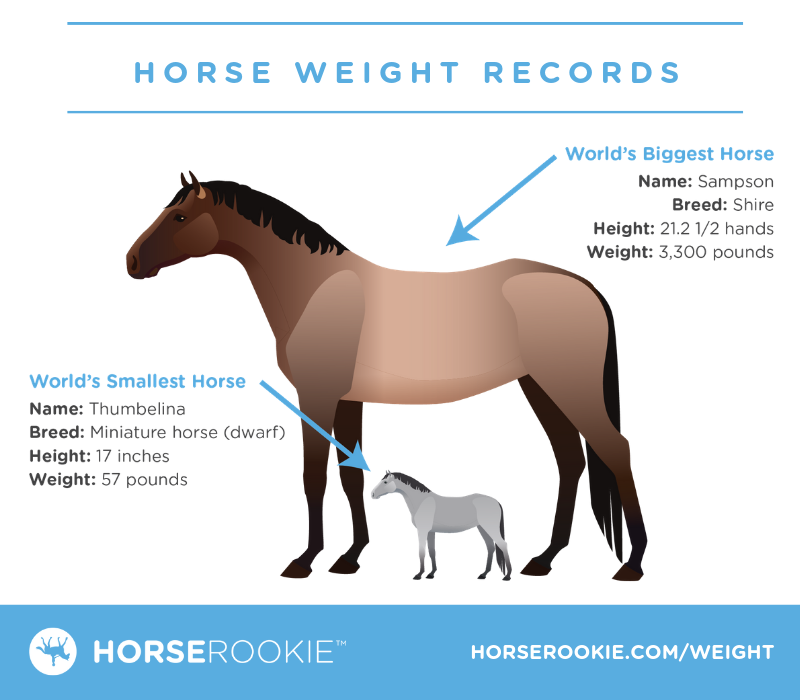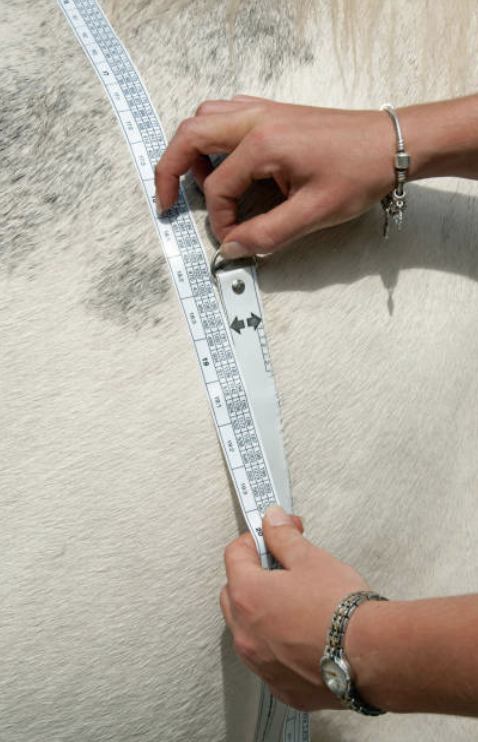Introduction
The average weight of a horse can vary between breeds, genders, and ages. It depends on height and build of the horse. Horses are measured in hands which is 4 inches to 1 foot. One hand is equal to 4 inches or 10.16cm. The height of horses is measured in hands and therefore their weight will also be measured in hands (h).
How much does the average horse weigh? This is a question that’s easy to answer for some, but not all. Some people don’t know what breed of horse they have or don’t know the weight of their horse at birth, which makes it impossible to guess how much they should weigh now. Luckily, there are some ways to estimate how much a typical horse weighs so you can make sure your horses are healthy and happy!
An average horse weighs 900-2,000 pounds, depending on size and breed. A lean, racing fit Thoroughbred, for example, has an average weight of 900-1,100 pounds, while the average Clydesdale (think Budweiser) weighs in at 1,800-2,000 pounds. Ponies, on the other hand, usually range from 200 pounds for a Shetland pony to 1,400 pounds for a bigger pony like a Haflinger.
Heavy vs. light horses
In general, a horse breed falls into one of two main categories, heavy and light.
Some horses are categorized as draft horse breeds like the Clydesdales, Percherons, Belgians and Shires. These heavy horses are the ones that pulled the plows and wagons for farmers before the advent of the tractor. These horses are built for work with short backs and powerful hindquarters, these breeds tend to run between 1,700 to 2,000+ lbs.
Light horses, on the other hand, range anywhere from 900 to 1,500 pounds, depending on the breed and size. These are the larger horses most often used for riding, racing, driving, herding cattle, etc. On the lighter end of this group are the Arabians who range from 900 to 1,100 pounds, while the average warmblood will weigh in the neighborhood of 1,200 to 1,300 pounds.
Horse Weight World Records Infographic

You’re welcome to use this infographic on your own website *as long as you link back to horse-rookie.local.* Feel free to share on Pinterest, as well by hovering over it and clicking the Pinterest icon. #knowledgeishorsepower
How much does a horse weigh at birth?
Believe it or not, no matter the breed, all foals weigh about 10% of their mothers weight at birth. So, a mare weighing 2,000 pounds will have a foal that weighs about 200 pounds at birth. A small horse or pony, weighing closer to 900 pounds, will have a baby that weighs about 90 pounds.
Horses grow quickly and usually reach about 90% of their full adult height by two years old.
The remaining 10% goes a little slower. A horse will continue to grow and fill out for about the next two years of its life reaching their adult height by about four.

A baby horse weighs ~10% of its mother’s weight at birth.
When raising foals it is important to tailor the feeding program to the breed. Feeding too slowly or not enough can result in stunted growth while feeding too much and too quickly puts the horse at risk for a host of developmental orthopedic diseases (DOD).
How are horses weighed?
There are four ways to weigh a horse:
1) A livestock scale give you the best and least arbitrary measure. You may have seen something similar in your small animal vet’s office and this is the same idea, only larger.
2) Weight tapes are similar to those used by a tailor. The horse weight tape is wrapped around the barrel to get an approximate measure. The size of the barrel (i.e. girth area) translates to their weight.
- Weight tapes are best for “average” size horses and may not be as accurate for smaller, larger, and growing horses.
- You can grab inexpensive weight loss tape

Weight tape is a common way to estimate horse weight.
3) Online Calculators use a formula to estimate your horse’s body weight. Just remember that the results are the estimated weight, not “down to the pound,” like you could get with a scale.
Try our horse weight calculator below!
Horse Weight Calculator
(function() { var qs,j,q,s,d=document, gi=d.getElementById,
ce=d.createElement, gt=d.getElementsByTagName,
id=”calconic_”, b=”https://storage.googleapis.com/calconic-cdn/static/js/”;
if(!gi.call(d,id)) { j=ce.call(d,”script”); j.id=id; j.type=”text/javascript”; j.async=true;
j.dataset.calconic=true;
j.src=b+”calconic.min.js”; q=gt.call(d,”script”)[0]; q.parentNode.insertBefore(j,q) }
})();
4) Eyeballing is the most arbitrary measure for horse weight. Even the most experienced owners and veterinarians can be off by as much as 200 pounds.
Why should we know a horse’s weight?
Aside from just general interest, there are a few good reasons why it’s good idea to know your horse’s weight.
Knowing how much your horse weighs helps you understand how much he should be eating.

Understanding horse weight is a prerequisite to feeding strategies.
Each horse is different so knowing their weight along with the lifestyle they lead can help you determine how much should they eat.
- The ‘average’ mature horse needs about 15 to 20 pounds of hay per day.
- Horses consume about 2.5% of their bodyweight per day.
- Don’t forget to hydrate! A horse needs between 5 to 15 gallons or more of clean water a day depending on temperature and activity level.
Knowing and understanding your horse’s weight helps you monitor and understand seasonal changes.
- Horses tend to lose weight in the winter when forage is less readily available and as their caloric needs go up.
- Horses will need extra calories to stay warm through those cold winter months and those calories will optimally come from good quality hay.
- It’s also important to monitor summertime eating as well as horses can easily put on extra fat as access to grass goes up.
- Horses will forage or munch on grass and hay up to 18 hours a day.
Knowing your horse’s weight helps flag possible health problems and determine medication dosing.
- Mis-dosing medication can have very bad consequences. It is important to know your horse’s weight before administering potent medications.
- Remember, even the best ‘guessers’ can be off by as much as 200 pounds.
Knowing your horses weight helps know how much weight he can safely carry or pull.
- The average horse can safely carry about 15 to 20 percent of its body weight (e.g. 1,000-pound horse can carry about a 200 pound rider).
- Asking a horse to carry too much weight for its size puts it at increased risk for soreness and lameness issues.
When evaluating a horse’s weight and general health, look at the following:
- Spine: You should not see his spine. If a horse is too thin, you will see a ridge down his back.
- Ribs: You should be able feel, but not see, a horse’s ribs.
- Tailhead/Croup: The tailhead should not be visible. If it is, the horse may be too thin.
- Withers: Withers will be easily visible on a horse that’s too thin.
- Neck: The horse’s neck bone structure should not be visible. If it is, the horse may be too thin.
Light horses average 900 to 1,100 pounds
Light horses are typically not as strong, fast or tall as other breeds. They also don’t need to be nearly as expensive or healthy to be successful at what they do for their owners. They’re usually around 900 to 1,100 pounds in weight and can live just about anywhere that has good grazing land.
Light horses are the most popular breed of horse in the United States (and the world).
Heavy horses average 1,300 to 1,500 pounds
- The average weight of a horse depends on the breed.
- The average weight of a horse depends on the horse’s height.
- The average weight of a horse depends on the horse’s gender.
- The average weight of a horse depends on the age of the horse and its health status. For example, horses that are overweight or obese will weigh more than those who maintain healthy weights for their size, age, and other factors like level of activity and feed quality/quantity supplied by owners or caretakers
How much do they weigh?
If you’re wondering how much a horse weighs, it’s important to know what kind of horse you’re looking at. It’s true that there are some smaller breeds of horses, but they tend to be light animals and are not typically used for work. If your horse is pulling or carrying weight, then he must be considered heavy.
Heavy horses average 1,300 to 1,500 pounds while light horses average 900 to 1,100 pounds.
Conclusion
The weight of a horse varies. Depending on the breed and the purpose, it can be anywhere from 900 to 1,500 pounds. But all in all, an average sized horse weighs between 1,100 to 1,300 pounds. So how much do they weigh?